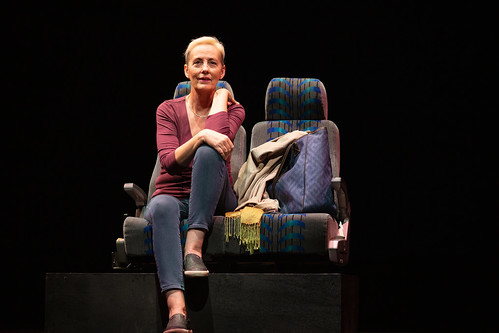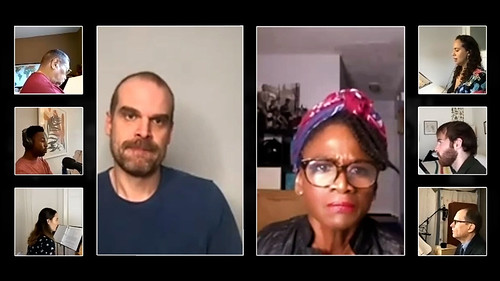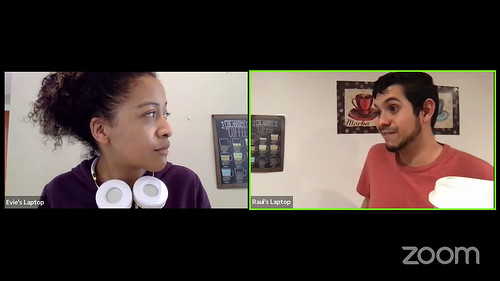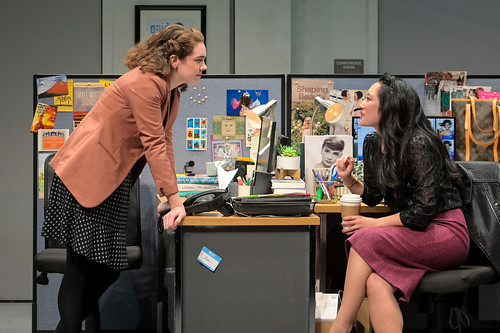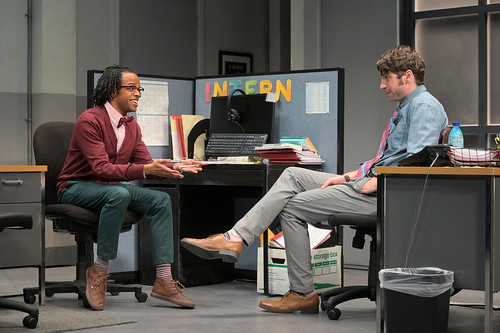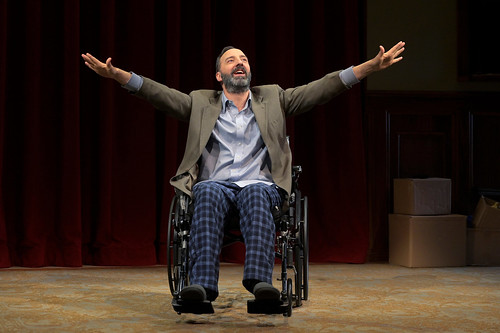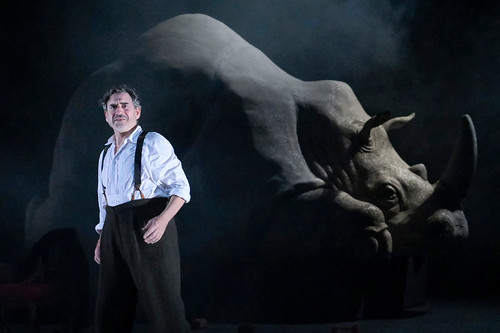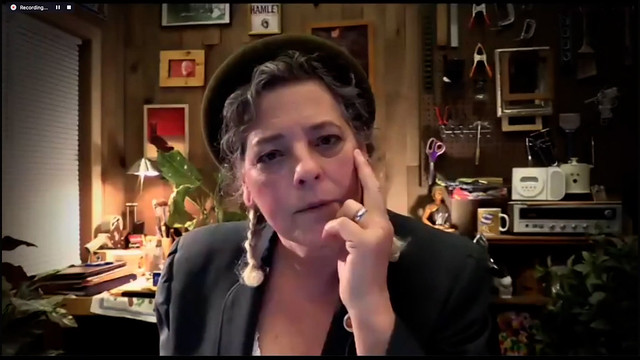
Stacy Ross is the star and the host of Communion, a new play presented on Zoom by American Conservatory Theater. Photos courtesy of American Conservatory Theater
For almost 30 years now, I have enjoyed performances by Stacy Ross on Bay Area stages. From Shakespeare to comedy to drama, Ross is masterful in everything she does – incisive, direct and full of surprises. She is reason enough to see Communion a new Zoom play by San Francisco playwright Christopher Chen commissioned and produced by American Conservatory Theater through June 27.
Unlike a lot of Zoom plays we’ve experienced in the last year or so, this one uses the format to its fullest, weirdest, wonkiest effect. That means a certain degree of audience participation, but don’t let that scare you. How can you expect a play called Communion not to ask audience members to commune, albeit from their homes via the Zoom grid? Some people are asked to contribute more than others, but Ross, who is our Zoom meeting host as well as the star of the play, will make sure you’ve experienced pinned Zoom boxes, grid views, muted/un-muted microphones, breakout rooms and a camera that remains on for the duration of the play’s 70 minutes.
Chen, working with director Pam MacKinnon, happily blurs the lines between where Ross ends and the play begins. She is, ostensibly, playing herself and broadcasting from her home. She and Chen, or so she tells us, want to experiment with this unique moment in our history when we’ve been separated for so long, to see if we can experience true communion through this thing they have created: a play. We can’t have the usual 3-D, flesh-and-blood, wood-and-paint theater experience, but we can experience each other in real time and do things that may or may not make us feel bonded as an audience.
If that sounds rather ordinarily aspirational, don’t forget that Chen is the architect of this experience, so it’s going to elevate into something smart, funny and unique in ways that may surprise you. The medium is the message here, and it can all get very meta, with Zooming about Zoom and thinking about thinking and communing over communion. Chen is constantly peeling back the layers, exposing the infrastructure and still asking us to stick with him, open-hearted but wary in order to make the play’s title come to fruition.
Ross is a beguiling host as she skillfully bridges her own life with glimpses into her past and her craft as an actor with her performance as a character in a play who may or may not be improvising even while she follows a script. We trust Ross, Chen and MacKinnon to take us someplace interesting, someplace we haven’t been on Zoom, and they definitely fulfill their end of that bargain. It’s ultimately what we go to the theater for in the first place: the illusion of reality that becomes real if you let it.
FOR MORE INFORMATION
Christopher Chen’s Communion continues through June 27 with live Zoom performances. Tickets are $41-$55. Call 415-749-2228 or visit act-sf.org.




